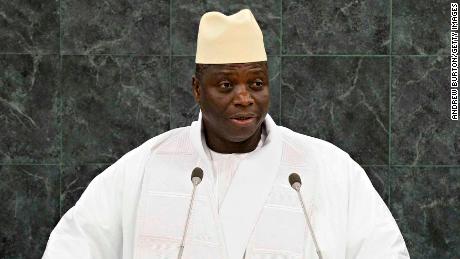By: Bulli Sowe
It was Thursday evening, February 22, 2007, and tensions were running high in Jammeh’s office. In a room filled with high-ranking officials, the draft to expel Zimbabwean national Fadzai Gwaradzimba, then UN Resident Coordinator, was ready for signing. It had been a long day, and the president was not in the best of moods. Earlier that day, Fadzai had criticized Jammeh’s assertion that he could cure AIDS, and he was not pleased. The atmosphere in the room was thick with tension. Jammeh signed the document, and the order was given. Fadzai had to leave the country immediately. The decision was final, and there was no room for negotiation.
Sixteen years have passed since that Thursday evening when Fadzai was expelled from The Gambia, but the echoes of that diplomatic crisis are still felt today. As we look back on the events that unfolded, it’s clear that the decision to expel Fadzai was a ticking time bomb waiting to go off. The fuse was lit, and the explosion that followed was heard around the world. Diplomacy is a delicate balancing act, and one wrong move can cause the whole system to come crashing down like a house of cards. In this case, the cards fell hard, and the fallout was felt across the international community like a thunderbolt from the blue.
It all began when Fadzai Gwaradzimba, a development envoy, dared to criticize Jammeh’s assertion that he could cure AIDS. It was a bold move, one that would set in motion a chain of events that would spark a diplomatic crisis and leave Gwaradzimba forever changed. Behind the scenes, Jammeh was seething with anger, his ego bruised by the envoy’s comments. He felt that his power had been challenged and that he needed to act quickly to reassert his authority. Looking back, it’s easy to see why Jammeh was so defensive. He had been touting his AIDS cure for years, and any criticism of it was seen as a direct attack on his leadership.
The behind-the-scenes activities leading up to the expulsion were both fascinating and troubling. From the humour in Jammeh’s office to the tense mood in the room when the decision was made, it was clear that this was no small matter. Fadzai was not a casual observer, but a highly respected envoy who had crossed a line.
Later that day, Jammeh received a call from a Top UN official who was concerned about the diplomatic fallout from Gwaradzimba’s expulsion. “I’m sorry, but we had to take action,”, Jammeh said, trying to sound diplomatic. “We cannot allow someone to come into our country and criticize our leadership”. The UN official responded with a sigh, “Well, I suppose it’s your country, and you can do what you want with it” Jammeh smirked and whispered, “I knew he wouldn’t put up much of a fight.”
Some have suggested that Jammeh may have been looking for an excuse to expel the envoy, due to her perceived bias against his administration. Others have argued that personal tensions between Jammeh and Gwaradzimba may have also played a role, and that the decision was a result of a clash of personalities. Perhaps, Jammeh saw Gwaradzimba’s criticism as an attack on his authority and power. After all, a leader who cannot command the respect of his people is no leader at all.
As we reflect on this historic event 16 years later, we are left with a sense of awe and respect for the complexities of the diplomatic world, and the role that small incidents can play in shaping the course of history. It is a story that reminds us of the power of words, the importance of empathy, and the need for leaders who are willing to listen and learn.
In Jammeh’s defence, one could argue that he was simply exercising his authority as a leader, and defending his country’s honour in the face of criticism. From his perspective, Gwaradzimba’s comments were not only offensive but also potentially harmful to the reputation of his country. It was his duty as a leader to protect his people, and he felt that the only way to do so was to expel the envoy.
In hindsight, some might argue that Jammeh’s decision was harsh, but at the moment, he might have thought it was the right thing to do. This diplomatic crisis could have been avoided, but sometimes, even the most skilled diplomats fall short, and the consequences can be far-reaching.
As the curtain falls on this historical incident, let us remember the lessons that it teaches us. Let us remember that words have power and that diplomacy requires tact and sensitivity. But let us also remember that sometimes, leaders must take bold action in the face of adversity. In the end, it is the interplay between these two forces – freedom and order – that shape the course of history.
In the end, both Gwaradzimba and Jammeh were motivated by a desire to do what they believed was right. While their actions may have been at odds, we should not demonize either one. Instead, we should recognize the complexities of diplomacy and the difficult choices that leaders must make.









